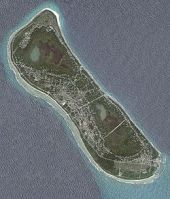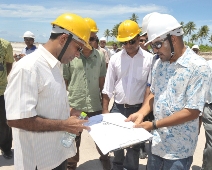More than a quarter of the global population lives in eleven countries in South-East Asia. These eleven countries which include Bangladesh, Bhutan, India, Indonesia, Maldives, Myanmar, Thailand, Sri Lanka and Timor-Leste also bear 28 percent of global disease burden. Government expenditure for health is lowest in this Region compared to all other WHO Regions.
This means that people in these countries have the highest out-of-pocket expenditure on health. Health care in these countries drives people into poverty and the poor into a vicious poverty trap.
How can South-East Asia maximise resources and ensure that their people remain healthy and productive? This would require a paradigm shift in health policies in favor of preventive care and public health services. Countries have the power to prevent disease through effective public health interventions. Unfortunately most countries invest heavily on Medicine and curative care in institutions – all of which focus on the person after they develop an ailment. Countries need to empower people through health education and preventive care to enable them to protect themselves from disease and maintain good health.
In these times of economic crunch, focusing on development of positive health while dealing with negative health would be a long term and cost effective intervention. Instead of waiting for people to get sick we need to reorient ourselves to protecting the health of people, especially those who do not yet show obvious signs of disease.
Community health workers can be the catalysts for such a shift. These are workers come from the communities and act as agents of change for promoting healthy behaviors and reduce health inequities at a relatively lower cost. Nations need to review and redefine the role of these community health workers and make them an integral part of the referral chain within the health system.
Every year millions of children’s lives can be saved by vaccination. Immunisation prevents diseases and contributes to the quality of life. Access to safe and effective vaccines is a basic right of all children. Yet about 10 million vulnerable children in these countries do not receive Diphtheria, Tetanus, Pertussis (DTP3) vaccination during their first year of life. While each year an estimated number of 1.5 to 2 million children die due to vaccine preventable diseases world wide; 25-30% deaths occur in these South-East Asian countries.
Every minute one child under the age of five dies of pneumonia in WHO’s South-East Asia Region. Diarrhoea kills 6-7 under-five children every 5 minutes. These lives can be saved through simple interventions. By improving child nutrition, exclusive breastfeeding up to the age of 6 months, continued breastfeeding, zinc supplementation, expansion of immunisation coverage, promotion of hand-washing and provision of safe drinking water and sanitation can prevent these diseases and deaths.
Seventy percent of the world’s malnourished children reside in WHO’s South-East Asia Region. Most of them suffer from anaemia, including deficiency of iron and Vitamin A. While many children die due to severe malnutrition, a larger number of deaths occur among the less severely malnourished. The consequences of malnutrition are inter-generational and besides health it can affect intellectual capacity and work capacity in adulthood. Unfortunately the same countries also suffer from unhealthy diets, obesity and a higher risk of chronic non communicable diseases. The cost of medical care for these diseases will impoverish their populations further.. . Countries need to bring together sectors like education, agriculture, fisheries, food processing, media and members of parliament to successfully meet nutrition challenges.
The disease burden in our countries can be effectively prevented through public health programs that strengthen primary health centers to educate communities about prevention.
Not all of the disease burden can be prevented. We are talking about a proactive health strategy. We are talking about a positive health approach. We are talking about a well informed public that know how to prevent, protect and maintain good health.
Countries in South-East Asia need to achieve a better balance between preventive and curative care. This balance in health care will reduce health-care cost and ensure better health and better quality of life of all people.
Dr Samlee Plianbangchang is the Regional Director of the World Health Organisation for South-East Asia
<em>All comment pieces are the sole view of the author and do not reflect the editorial policy of Minivan News. If you would like to write an opinion piece, please send proposals to [email protected]</em>




